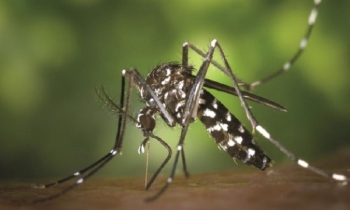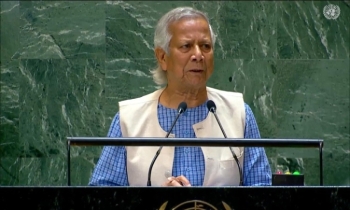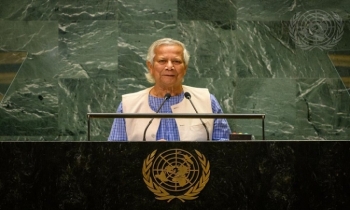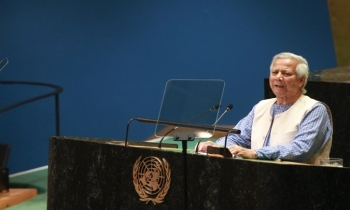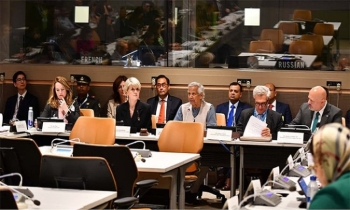2mn children at risk as worst floods in 3 decades lash through Bangladesh: UNICEF
BI Report, Dhaka || BusinessInsider
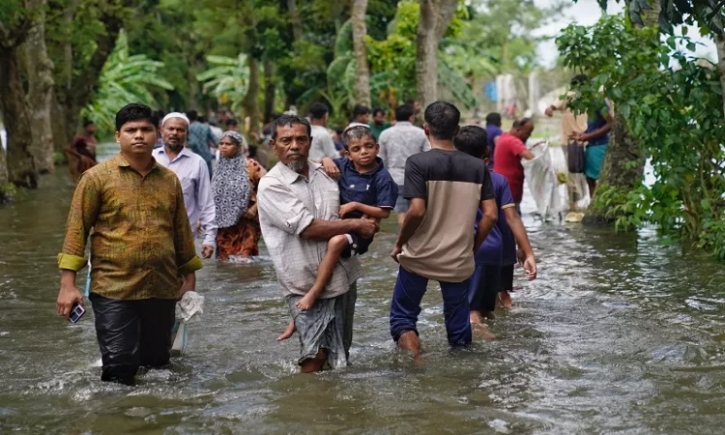
Photo: Collected
Over two million children in eastern Bangladesh are at risk as floods sweep through homes, schools and villages, UNICEF has warned.
In all, these floods, the worst in eastern Bangladesh in 34 years, have affected 5.6 million people, UNICEF said in a statement on Friday.
Major rivers in the southeast are overflowing due to unprecedented monsoon rains.
As a result, more than 52 people have been reported dead.
Over 500,000 people are seeking shelter after rising waters from swollen rivers submerged homes, streets and fields in Chattogram and Sylhet Divisions.
Millions of children and families are stranded without food and emergency relief supplies.
Government personnel and volunteers are conducting rescue operations, though access remains difficult in some areas. In the coming days, more people will be affected as the monsoon season continues.
“The devastating floods in the eastern parts of Bangladesh are a tragic reminder of the relentless impact of extreme weather events and the climate crisis on children, said Emma Brigham, Deputy Representative of UNICEF Bangladesh.
"Far too many children have lost loved ones, their homes, schools, and now are completely destitute. UNICEF is on the frontlines providing water purification tablets, oral rehydration salts and other essential supplies, but more funds are needed to reach these children and prevent an even more devastating impact on their futures.”
UNICEF has been on the ground since the onset of the disaster. Having joined an initial assessment mission with the Advisor to the Ministry of Local Government, Rural Development and Cooperatives, Hasan Arif, UNICEF with its partners has reached over 338,000 people, including 130,000 children, with life-saving supplies such as 3.6 million water purification tablets, 25,000 jerry-cans to store water and over 250,000 oral rehydration salt sachets.
But much more is needed. People and children urgently require cash assistance, safe drinking water, hygiene kits, emergency latrines, sanitary pads, oral rehydration salts and emergency life-saving medicines.
Primary healthcare services to treat sick newborns and children and help pregnant women to give birth must be restored immediately.
The recent floods come close on the heels of the floods in north Bangladesh and Cyclone Remal in May.
Jointly, the three emergencies have impacted over 13 million people across Bangladesh, including 5 million children.
In response to these three emergencies, UNICEF urgently requires up to $35.3 million for critical, life-saving, and multi-sectoral interventions for children, as well as pregnant and lactating women.
Climate change increases the frequency, severity and unpredictability of cyclones, floods and other extreme weather events affecting Bangladesh, underscoring that the climate crisis is fundamentally a child rights crisis.
According to the UNICEF Children’s Climate Risk Index, children in Bangladesh are the most exposed in the world to climate and environmental hazards.
Globally, UNICEF addresses the climate crisis to:
- a) protect the lives, health and well-being of children;
- b) empower every child to become a champion for the environment; and
- c) reduce the emissions and environmental footprint.
“Year on year, the lives of millions of children in Bangladesh are being ravaged by floods, heatwaves and cyclones, said Brigham.
"Climate change is clearly changing children’s lives. We call on global leaders to act urgently, and take strong measures to mitigate the effects of climate change before it is too late for children.”

